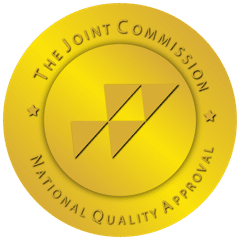Overcoming dependency is often the first, crucial step on the path to health. Choosing the right approach—whether a residential program or flexible, home-based care—can be challenging. This decision largely depends on each person’s unique needs, the severity of their condition, and the level of support required. Lift Off Recovery in Anaheim offers both structured residential care and flexible, non-residential programs to cater to diverse recovery needs.
This guide breaks down the essential aspects of each option, helping you make an informed choice for your recovery journey.
What Is Alcohol Detox?
Detoxification removes alcohol from the body under safe, controlled conditions, allowing individuals to manage symptoms effectively. Withdrawal can range from mild symptoms like anxiety and nausea to more intense experiences, making professional monitoring vital. At Lift Off Recovery, our programs are designed to ensure this first step is safe and supportive.
Residential Detox: Intensive, Around-the-Clock Support
Residential programs involve staying at a treatment center, providing continuous care for those with intense dependencies or those at risk of significant withdrawal symptoms.
Learn more about our alcohol detox programs at Lift Off Recovery.
Inpatient Alcohol Detox: Comprehensive, 24/7 Care
Inpatient alcohol detox involves staying at a treatment facility for the duration of the detox process. This option is best suited for those with severe alcohol dependence or those who have previously experienced withdrawal symptoms that could become life-threatening.
Key Benefits of Inpatient Detox
1. 24/7 Medical Supervision
One of the primary benefits of a residential program is access to medical support around the clock. At Lift Off Recovery, our healthcare team is always available to monitor symptoms and address complications immediately, providing essential care for those needing close supervision.
2. Safe, Controlled Environment
Residential care offers a stable setting, allowing clients to focus solely on their recovery without external distractions or temptations. This environment is ideal for individuals who may struggle to avoid triggers in their home or social settings.
3. Immediate Access to Support
Residents have immediate access to both medical and therapeutic assistance, including medication management, counseling, and emotional support throughout the program.
4. Higher Success Rates
Residential programs provide a structured setting that reduces the risk of relapse, especially beneficial for those with a high level of dependency.
Explore our inpatient alcohol rehab program to see if it’s the right option for you.
Outpatient Alcohol Detox: Flexibility with Professional Support
For those with milder dependencies or a strong support network at home, non-residential programs allow individuals to receive treatment without leaving their daily environment. This flexible option is ideal for people who need professional support but cannot commit to a full-time residential stay.
Key Benefits of Outpatient Detox
1. Flexibility
Non-residential programs offer the flexibility to continue daily activities such as work or school while receiving care. This approach is beneficial for those motivated to recover while balancing other responsibilities.
2. Lower Costs
Non-residential care tends to be more affordable than residential options since it doesn’t require a prolonged stay at a facility, making it accessible to more individuals.
3. Access to Support Networks
This option allows clients to stay connected with family and friends, an essential component of many recovery journeys. A stable home environment with support is crucial for success in this setting.
4. Tailored Care
At Lift Off Recovery, our non-residential program is customized to each client’s needs, ensuring they receive proper care and support while maintaining independence.
Learn more about our outpatient alcohol detox program and how it might work for you.
Comparing Inpatient and Outpatient Programs: Key Considerations
Selecting the right approach for overcoming dependency is a highly individualized decision that involves evaluating specific personal factors. Each option—residential or non-residential care—offers distinct advantages and is suited to different types of needs. Here’s a more in-depth look at the primary considerations to help in making this choice:
1. Severity of Dependency
The extent and history of alcohol use play a critical role in determining the best treatment setting. For individuals with a long-standing, heavy use history, or those who have experienced severe withdrawal symptoms in the past, a structured residential program may be essential. This setting provides continuous support and medical supervision, ensuring any withdrawal symptoms, especially acute ones, are managed immediately and effectively. Symptoms of severe dependency can include tremors, seizures, or delirium tremens, which, if untreated, may lead to dangerous health outcomes. Residential care, with its immediate access to professionals, is designed to safely navigate these complexities.
On the other hand, individuals with a less intense history of use or a mild level of dependency may benefit from the adaptability of a non-residential program. Non-residential care allows them to work through their symptoms in a setting that respects their day-to-day obligations while still providing necessary medical and therapeutic support. This option is ideal for individuals whose symptoms are manageable without intensive supervision and who can handle recovery in a less controlled setting.
2. Medical History and Complications
Pre-existing health conditions can have a significant impact on the type of care required. Those with underlying medical issues, such as cardiovascular conditions, diabetes, or respiratory problems, may face additional risks during the withdrawal process. Residential programs are generally recommended for these individuals due to the immediate availability of medical professionals who can intervene swiftly in case complications arise. The round-the-clock monitoring provided in a residential setting is particularly crucial for people with histories of serious health issues or those who have experienced dangerous withdrawal symptoms before.
For individuals in relatively good health who are at a low risk for complications, non-residential care can offer a more practical and comfortable approach to recovery. Non-residential programs still provide necessary medical oversight but do not require the same level of continuous monitoring. This option can be convenient and less intrusive for those whose health profile allows them to detox and recover in their home environment with scheduled check-ins and periodic assessments.
3. Home and Social Environment
The role of an individual’s immediate environment in the recovery process cannot be overstated. For non-residential programs, having a supportive, substance-free home environment is essential. The presence of family members, close friends, or a partner who is actively involved and encouraging can significantly improve the chances of success. A stable home environment helps reduce triggers and reinforces positive behavior, which is critical during the initial stages of recovery. However, for individuals in environments where alcohol is present or easily accessible, or if they face challenges like living alone or lacking family support, non-residential care may present a risk.
In such cases, residential care offers a controlled, secure environment that shields the individual from daily triggers or temptations. A residential program not only provides a substance-free setting but also fosters a community of peers and professionals who understand and support the recovery journey. For those lacking support at home or living in environments where substances are readily available, residential programs ensure that the focus remains solely on healing without outside pressures.
4. Level of Support Needed
Each individual’s support needs vary, and understanding these is key to selecting the appropriate treatment path. Some people benefit from the structured, intensive support that only a residential program can offer. This option is ideal for individuals who may struggle with self-discipline or feel overwhelmed by the recovery process. The structure provided in a residential setting offers a strict routine, from regular meals and sleep schedules to therapy sessions and group activities, all of which can help establish a solid foundation for a successful recovery. The presence of medical and therapeutic professionals provides immediate, ongoing support, allowing individuals to focus solely on their treatment and growth.
Conversely, non-residential programs are better suited to those who thrive with independence and flexibility. People who can maintain their recovery goals while balancing responsibilities such as work, school, or family may find the non-residential option empowering. This approach allows for personalized support, including scheduled counseling sessions and periodic check-ins, without the confines of a structured, 24/7 environment. Non-residential programs enable individuals to apply their coping skills and recovery strategies in real-time within their daily lives, offering a unique opportunity to practice resilience and adaptability.
The Importance of Choosing the Right Detox Program
No matter which option you choose—whether it’s inpatient or outpatient detox—the most important factor is that you receive the medical support and care you need to manage withdrawal safely. Alcohol detox is a critical first step in recovery, and choosing the right program can help set the stage for long-term sobriety.
At Lift Off Recovery in Anaheim, we offer both inpatient and outpatient detox options, ensuring that each client receives the personalized care and attention they need to succeed in their recovery journey. Our experienced team is here to help you navigate the decision-making process and provide guidance on which detox program is best for your specific situation.Contact us today to begin your journey toward long-term sobriety.





